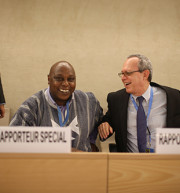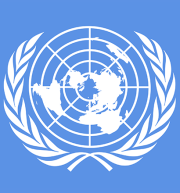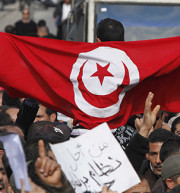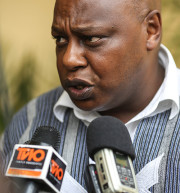
This page summarizes cases raised with Rwanda by the Special Rapporteur between May 1, 2011, (when the Special Rapporteur took up his functions) and February 28, 2017 (the date of the last public release of communications). Communications are released to the public once per year. This page also contains observations on these communications and on responses received from Rwanda. Communications and observations are divided into sections based upon which observation report they originally appeared. Each communication is referenced as urgent appeal (UA), allegation letter (AL), joint urgent appeal (JUA) and joint allegation letter (JAL) - the hyperlinks lead to these documents. This is followed by the date the communication was issued, as well as the case number and the State reply (also hyperlinked if available). Summaries and communications are published only in the language of submission (in the case of Rwanda, French). First Report (May 1, 2011 to March 15, 2012) None Second Report (March 16, 2012 to February 28, 2013) None Third Report (March 1, 2013 to February 28, 2014) None Fourth Report (March 1, 2014 to February 28, 2015) Joint urgent appeal, 08/12/2014. Case no: RWA 2/2014. State reply: None. Alleged arrests and detentions of ousted members of the non-governmental organization... Continue reading →

NAIROBI/ARUSHA – Special Rapporteur Maina Kiai has filed an amicus curiae brief before Africa’s top human rights court stating that authorities which interfere with the internal affairs of associations violate the international right to freedom of association. The brief was filed in the case of Laurent Munyandilikirwa versus The Republic of Rwanda, which concerns the alleged government-supported takeover in 2013-14 of the Rwandan League for the Promotion and Defense of Human Rights (LIPRODHOR), one of Rwanda’s most prominent and outspoken human rights organizations at the time. The case is currently pending before the African Court of Human and Peoples’ Rights in Arusha, Tanzania. In July 2013, a group of LIPRODHOR members met in violation of the organization’s by-laws and voted in a new board, ousting the NGO’s previous leadership. The ousted board challenged the change in leadership via LIPRODHOR’s internal dispute resolution process, which ruled in their favor. Despite this, the Rwanda Governance Board – the government body that regulates NGOs in the country – moved rapidly to recognize the new board. Government authorities then doubled down by preventing members of the old board from conducting a human rights training in 2013, and from meeting to discuss the status of LIPRODHOR... Continue reading →

Issue No. 7 of the Assembly and Association Briefing, the newsletter of Maina Kiai, UN Special Rapporteur on the rights to freedom of peaceful assembly and of association. In this issue: • Kiai makes official visit to Oman; says it’s time for sultanate to build on economic development and fully embrace human rights • UN experts urge Bahrain to release human rights defender Maryam Al-Khawaja • Iran: Kiai condemns the recent wave of arrest and sentencing of civil society actors • UN experts urge Tasmania to drop bill that would limit protests against businesses • Kiai and others call on the government of Azerbaijan to stop persecution of rights activists • UNSR makes follow-up visit to Rwanda • Freedom of association and assembly: By the numbers • Special rapporteur news in brief: July-September 2014 • World briefing: Freedom of assembly and association in the news For a link to the newsletter, click on the image at right or click here (3.1MB file) or here (9.5MB full resolution file). To subscribe to our newsletter, please drop us a line at info@freeassembly.net with the subject line “subscribe to newsletter.” For other recent newsletters, see the links below: The Assembly and Association Briefing, Vol. 1, Issue 4 (May 2014) The Assembly and Association Briefing,... Continue reading →

NAIROBI - UN Special Rapporteur Maina Kiai recently completed a two-day visit to Rwanda at the invitation of the Government, in follow-up to the official mission he conducted in January 2014. The August 25-26 visit provided an opportunity for Government representatives and Kiai, who is the Special Rapporteur on the rights to freedom of peaceful assembly and of association, to discuss Rwanda’s progress in implementing key recommendations made since the official mission. Kiai also made recommendations to the government as Rwanda prepares for its upcoming Universal Periodic Review (UPR) in October 2015. “I thank the Government of Rwanda for its continued cooperation and willingness to engage in open and frank constructive dialogue on the rights to freedom of peaceful assembly and of association,” Kiai said. Following the visit, Kiai acknowledged the great strides that Rwanda has made in rebuilding its society and economy since the genocide 20 years ago, but said that the time has come for the government to put the same energy and resources into creating an environment where assembly and association rights can thrive. “It is essential in any society that there is space for peaceful dissent, discussion and dialogue,” Kiai said. “And it is incumbent upon every Government to help create this... Continue reading →

GENEVA – Special Rapporteur Maina Kiai today urged UN member states to protect the assembly and association rights of all people within their borders – including those who are “seen as being different” and may be marginalized as a result. Kiai’s remarks were delivered to the Human Rights Council on June 10-11 in Geneva, where he presented three reports – a thematic report on the assembly and association rights of groups “most at risk,” a country report on his official mission to Rwanda, and third on communications transmitted to UN Member States. The Special Rapporteur’s most recent thematic report documents the challenges faced by marginalized groups in exercising – or seeking to exercise – their rights to freedoms of peaceful assembly and of association. These groups, deemed “most at risk,” include persons with disabilities; youth; women; lesbian, gay, bisexual, transgender and intersex (LGBTI) people; members of minority groups; indigenous peoples; internally displaced persons; and non-nationals, including refugees, asylum seekers and migrant workers. “It matters not whether we approve or support the activities of these marginalized groups at risk,” Kiai told the Council. “The test of international law is that as long as their activities are non-violent,... Continue reading →

GENEVA – United Nations Special Rapporteur Maina Kiai will appear before the 26th Session of the UN Human Rights Council on June 10 to present his latest reports – one on his official mission to Rwanda and another focusing on the assembly and association rights of marginalized groups. He will also present a third report on observations on communications transmitted to Governments and replies received between March 1, 2013, and February 28, 2014. Kiai, who is the UN Special Rapporteur on the rights to freedom of peaceful assembly and of association, is scheduled to present at the Council’s afternoon session on June 10, which begins at 12:30 p.m. local time; his presentation may run into June 11, depending on the length of other agenda items. The session will be broadcast live on http://webtv.un.org/. Thematic Report: Groups Most At Risk Kiai’s thematic report documents the challenges faced by marginalized groups in exercising – or seeking to exercise – their rights to freedoms of peaceful assembly and of association. These groups, deemed “most at risk,” include persons with disabilities; youth; women; lesbian, gay, bisexual, transgender and intersex (LGBTI) people; members of minority groups; indigenous peoples; internally displaced persons; and non-nationals, including refugees,... Continue reading →

The Journal of Global Ethics has published an essay by Maina Kiai, in which he reflects on the first three years of his mandate, and the global state of assembly and association rights three years after protests exploded in Tunisia, sparking the Arab Spring. The essay, “Three years after Tunisia: thoughts and perspectives on the rights to freedom of assembly and association from United Nations Special Rapporteur Maina Kiai,” is available for free download to the first 50 people; subsequent access is by purchase only. Although Kiai’s mandate was created in late 2010 against the backdrop of shrinking space for civil society, a massive and growing global protest movement has grabbed most of the headlines since 2011. Kiai argues that the mandate has made a measurable impact – having helped raise awareness of repressive NGO laws, provided technical assistance to governments to strengthen assembly and association rights and developed soft law. But perhaps the most important work of the mandate, he argues, has been its contribution to a better understanding of just how important the rights to freedom of peaceful assembly and association are. “These rights satisfy people’s fundamental desire to take control of their own destinies,” Kiai writes. “They need to speak out, to work together... Continue reading →

Issue No. 2 of the Assembly and Association Briefing, the official newsletter of Maina Kiai, UN Special Rapporteur on the rights to freedom of peaceful assembly and of association. In this issue: • Kiai makes official visit to Rwanda; calls for increased space for peaceful dissent • Kiai makes unofficial visit to Cambodia, calls on gov’t to lift ban on public assemblies • Freeassembly.net website updated with new ‘country invitation status’ page • Community of Democracies & UNSR launch new project on civil society’s right to access funding • UK lobbying bill threatens to ‘stain’ British democracy • World briefing: freedom of assembly & association in the news • Assembly & association rights: By the numbers • Plus, our new Flickr page, which allows anyone to download and reuse official photos from the UNSR mandate under a Creative Commons attribution license For a link to the newsletter, click on the image at right or click... Continue reading →

KIGALI / GENEVA – United Nations Special Rapporteur Maina Kiai commended the Rwandan Government on its economic development in the 20 years since the 1994 genocide, but urged that undue restrictions on the freedoms of peaceful assembly and association be lifted so that the country can expand its achievements to the fields of multiparty democracy and human rights. “I commend Rwanda for its remarkable progress in developing infrastructure, building institutions and ensuring stability and security over the past 20 years,” Mr Kiai said* at the end of his first official visit to the country. “These efforts have laid the foundation for a bright future for Rwanda.” “The next step is to build upon that foundation by developing a true multiparty democracy and allowing space for peaceful dissent,” stressed the independent expert charged by the UN Human Rights Council to monitor and promote the realization of the rights to freedom of peaceful assembly and of association worldwide. Freedom of peaceful assembly The Rwandan Constitution guarantees freedom of peaceful assembly, but the Special Rapporteur said he found that in practice, peaceful protests criticising government policies were generally not allowed. He also noted a “contradiction in requiring both prior notification and authorisation,... Continue reading →

Kigali, 27 January 2014 I would like to thank the Government of the Republic of Rwanda for inviting me to carry out a visit to the country. I commend Rwanda for being the first country in Africa to extend an invitation to my mandate since its establishment by the Human Rights Council in October 2010. I thank the Government for its excellent cooperation before and during the conduct of this mission. I am most grateful to all interlocutors I have met. I had fruitful exchanges with the Prime Minister, the Minister of Justice, the Minister of Internal Security, the Minister of Local Government, the Minister of Public Service and Labour, the Minister of Trade and Industry, the Minister of East African Community, the Permanent Secretary of the Ministry of Foreign Affairs, and the Inspector General of Rwanda National Police. Moreover, I had the opportunity to meet with the Governor of the South Province and the Mayor of Huye. I also met the Chief Justice, the President of the High Court, the Prosecutor General, the Deputy Speaker of the Parliament, and the Chair of the Committee on Unity, Human Rights and fight against Genocide of the Chamber of Deputies and its members. I had meetings with the National Unity and Reconciliation Commission, the Director of the Directorate General of Immigration and Emigration,... Continue reading →